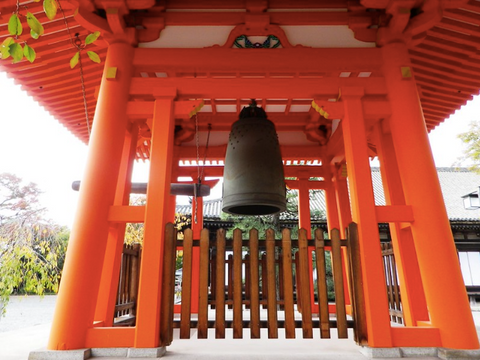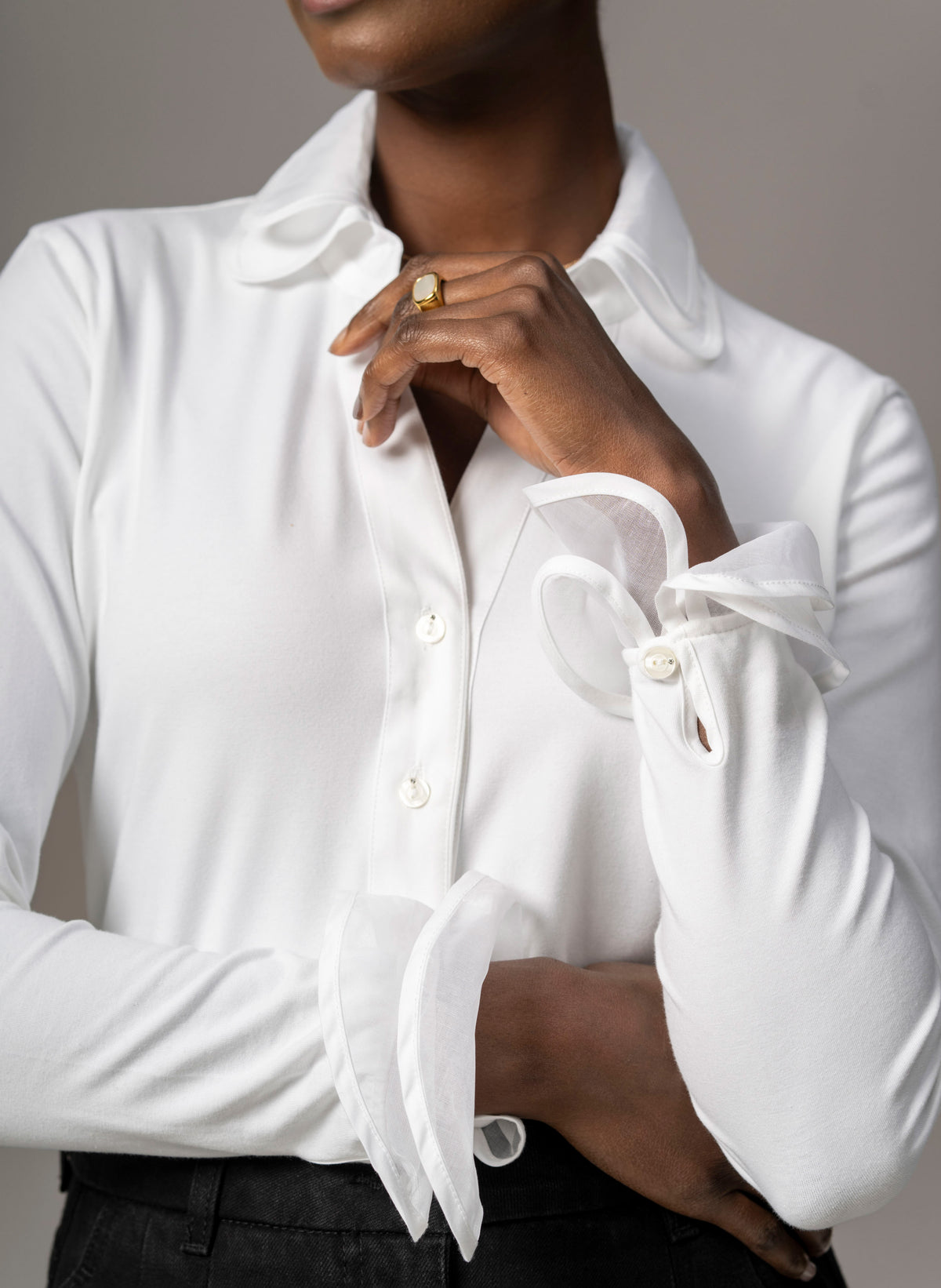14 Grape Gobbling, Bread Bashing, Furniture Flinging New Year Traditions From Around the World to Welcome 2023 With a Bang!

Hurrah! It’s finally time to cast a crumpled 2022 unceremoniously into the waste-bin of years gone by and usher in a new chapter with a — hopefully — more upbeat storyline.
In the spirit of waving goodbye to 2022, take a small tour through some lesser known (depending on where you’re from!) New Year's traditions. I don’t know about you, but I find the ones where the old year is ritualistically smashed, bashed and burned particularly inspiring for some reason!
1. Smashing Plates on Your Mates Front Door in Denmark

Image credit: Flickr/Eric Allix Rogers
Smashing a load of crockery on your friend's doorstep might seem like an unusual way to show appreciation, but in Denmark you can see who is queen bee in the popularity stakes from the amount of shards scattered around the front door. According to tradition, the more smashed plates, the more luck you'll get in the new year.
2. Rapid Fire Gobbling 12 Grapes in Spain

Image credit: Wikicommons/Jacinta Lluch
Known as ‘Las doce uvas de la suerte’ (The twelve grapes of luck), in Spain it’s traditional to hastily swallow a grape with each strike of the clock when the New Year is chimed in. Unless you happen to be as well practiced as an egg-eating snake at dislocating your jaw and swallowing spherical objects, this is a near impossible feat, so you’re sure to start 2022 with a good laugh.
3. Throwing Furniture Out of the Window in Johannesburg

Image credit: Flickr/Leonid Mamchencov
Confined to the Hillbrow suburb of Johannesburg, this annual defenestration of unwanted furniture is actually pretty hazardous due to the high rise buildings in the area. Despite this, residents are loathe to give up their cathartic 'out with the old' tradition and armoured ambulances now patrol the area on new years's eve to withstand the potential showers of sofas.
4. Ringing in the New Year 108 Times in Japan

Image credit: Flickr/RCJ00
This epic clanging of the temple bells symbolises the 108 earthly desires one can experience throughout life according to Buddhism. The ceremony is designed to cast out all of the problems and worries from the former year, so the new year starts afresh. No doubt the monks will be ringing with extra gusto this year.
5. Embracing All Things Circular in the Philippines and China
The circle is a symbol of prosperity and good fortune, so you can expect to see circles galore on New Year's Eve in both China and the Philippines. Many households display 12 round fruits — one for each month of the upcoming year — and polka dot clothing is popular.
In the Philippines, adults and children alike traditionally jump as high as they can when the clock strikes midnight to help them grow taller in the new year.
6. Burning Effigies in Ecuador

Image credit: Wikicommons/Carlos Adampol Galindo
When midnight strikes in Ecuador, effigies around the city go up in flames in a cleansing ritual to purge any misfortune from the previous year so the next 12 months can start fresh and squeaky clean.
Although the origins of this tradition are obscure, it is thought that it all began back in 1895 during a particularly virulent yellow fever epidemic. In order to cleanse the area of Guayaquil — which was particularly badly impacted — coffins full of the clothing of the dead were burnt as both a literal and symbolic purification rite.
These days, the effigies set aflame are more lighthearted and include cartoon characters, politicians and superheroes. If you want an added clout of good luck, you can risk becoming an accidental effigy yourself and jump over the flames 12 times.
7. Telling the Future in Tin in Germany

Image credit: Flicr/Thomas Helbig
Known as Bleigießen, it's a common New Year tradition to melt tin over a flame on a spoon and then plunge it into cold water to see what the future holds. Each frozen shape has a special meaning which is interpreted with a special guide.
8. Partying with an Empty Suitcase in Columbia
Taking an empty suitcase for a New Year's Eve stroll might seem eccentric, but in Columbia it is a surefire way to ensure that the next year will be jam-packed with travel and adventure.
9. Jumping Seven Waves in Brazil
New Year's Eve in Rio is dedicated to the Goddess Iemanjá, the Queen of the Ocean and events revolve around the sea. It's customary to wear white and throw white flowers into the ocean as offerings. If the offering comes back to you in the waves, it's a sign that the goddess is displeased, so many people choose to send their floral gifts out on tiny boats to ensure they are received kindly.
Jumping seven ocean waves is also a way to be granted wishes for the new year by Iemanjá, just be sure not to look back as you leave the ocean after your final leap.
10. Pinning Your New Year Hopes on Your Pants in Italy and South America

Image credit: Flickr/Frank Farm
The colour of your underwear is thought to set the tone for the new year in both Italy and most South American Countries, but different hues have different shades of meaning. In Italy, red underwear is thought to bring good luck, but in South American Countries, red underwear will fire up your love life and it's yellow skimpies which bring wealth and prosperity.
In Italy, this tradition apparently harks back to medieval times when men would drape a red cloth over their 'family jewels' to protect them from witches who were out making trouble at midnight.
11. Drinking Wishes in Champagne in Russia
In Russia, on New Year’s Eve, revellers scribble their wish down on scrap of paper, and then burn it with a candle, and reserve the ashes. The ashes are then crumbled into a tall glass of champagne at the stroke of midnight and glugged down in a toast. The idea is that your dream or wish will come true by internalising it — quite literally.
12. Hanging Onions in Greece

Image credit: Flickr/Heather Calper
Onions are a symbol of rebirth and in Greece they are hung over doors as a symbol of renewal for the coming year. The onion is chosen as a potent symbol of fertility due to the fact it eventually sprouts no matter how unfavourable the circumstances it's stored in are.
Other Greektraditions include smashing a pomegranate on the floor (another symbol of fertility and regeneration) and stepping on mossy stones.
13. Saying it with Coal in Scotland
According to the Scottish superstition of first-footing, the first person to cross the threshold of a household dictates the fortunes of the residents for the year. The most “lucky” first-footer is a dark-haired male who arrives bearing a lump of coal, a coin, a piece of bread and a drink — preferably whisky.
Dark-haired men are said to be preferable as back when the Vikings were a real threat, the arrival of a fair-haired man on the doorstep in the dead of night would have spelled trouble. Today people still celebrate first-footing by dropping into each others homes after midnight, although this year they will be consigned to stay on the doorstep and wave with goodwill.
14. Bashing the Bread and Sleeping with Mistletoe in Ireland

Image credit: Flickr/Deborah
It is Irish custom to bash the walls with bread on New Year's Day for to chase away bad luck and evil spirits or, in some areas, to ensure the new year is rich with plenty of good luck and bread to eat.
Singletons are encouraged to sleep with mistletoe under their pillows so their true love will appear to them in a dream.
However you choose to celebrate your New Year, everyone at The Shirt Company wishes you a happy and healthy 2023 and look forward to seeing you all next year.











